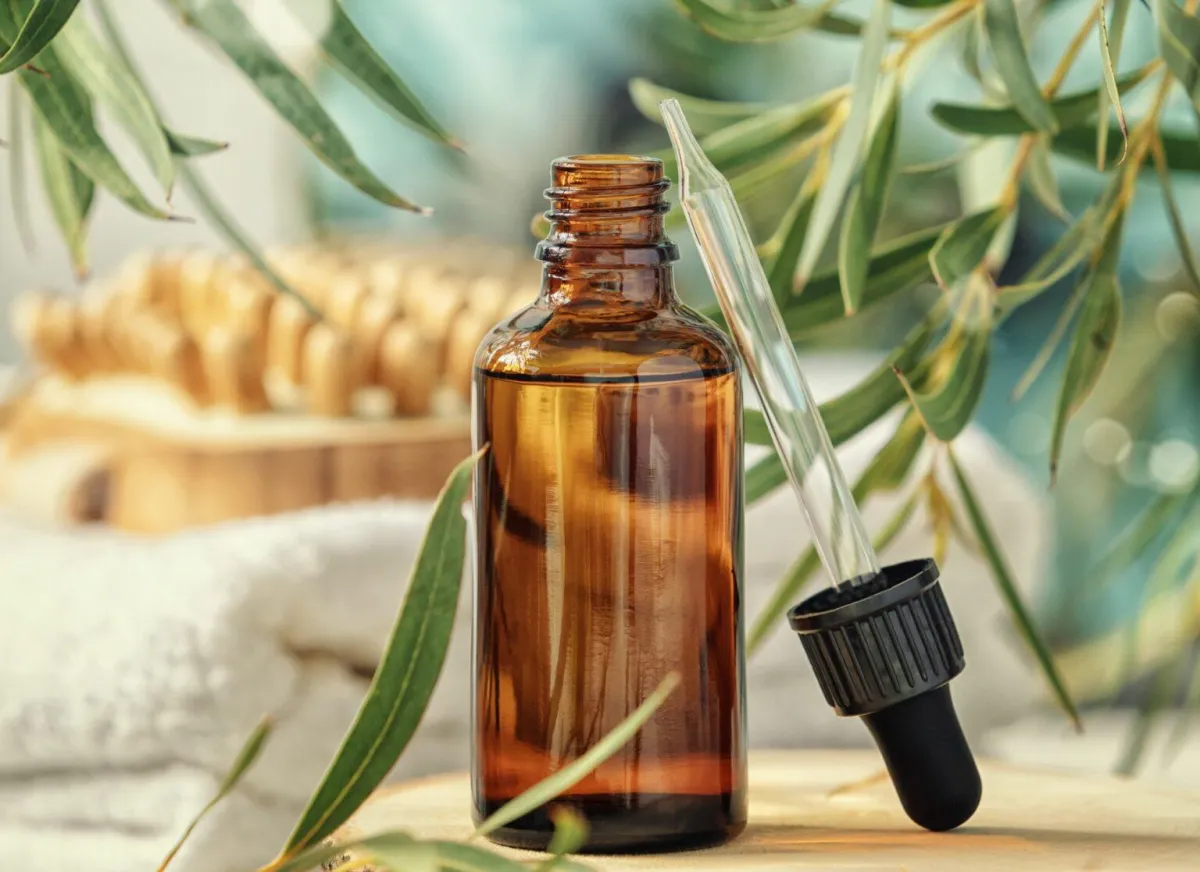
Patchouli Essential Oil, Love it or Hate it!
Patchouli essential oil, derived from the fragrant leaves of the patchouli plant, offers a rich and earthy aroma that has captivated aromatherapy enthusiasts for centuries. Known for its grounding and balancing properties, patchouli is often used in perfumery, skincare, and spiritual practices. This versatile oil is celebrated for its ability to promote relaxation, uplift the mood, and enhance meditation experiences. Whether you’re seeking a natural remedy for stress relief or simply drawn to its exotic scent, patchouli essential oil invites you to explore its many benefits for both body and mind.
Patchouli’s polarizing reputation as a “love it or hate it” scent stems from its distinct and potent aroma. Its earthy, musky, and sometimes sweet notes evoke strong reactions in people, often based on personal experiences and associations. For those who love patchouli, its deep, grounding scent can be comforting, soothing, and even nostalgic, reminiscent of nature or past memories. On the other hand, those who dislike patchouli may find its aroma overpowering, musty, or too strong for their liking, possibly due to negative past encounters with the scent or differing olfactory preferences.
Blending
Patchouli may not be your cup of tea, but it is known for its versatility in blending with other essential oils, offering a rich base note that can enhance and deepen various aromatic profiles. Its earthy, musky aroma pairs well with a wide range of oils, adding depth and complexity to blends.
Floral Blends: Patchouli blends beautifully with floral essential oils like lavender, rose, geranium, and jasmine, adding a warm, grounding element to the delicate floral scents.
Citrus Blends: When combined with citrus oils such as bergamot, grapefruit, or orange, patchouli can create a refreshing and uplifting blend, balancing the bright citrus notes with its earthy undertones.
Woody Blends: Patchouli complements other woody essential oils like cedarwood, sandalwood, and vetiver, creating a harmonious blend that is grounding and calming.
Spicy Blends: Mixing patchouli with spicy oils like cinnamon, clove, or ginger can result in a warm and inviting aroma, perfect for creating a cozy atmosphere.
Herbal Blends: Patchouli can also be combined with herbal oils such as clary sage, basil, or rosemary, adding depth and complexity to the herbal scents.
Overall, patchouli’s unique aroma can enhance and balance a wide variety of essential oil blends, making it a valuable addition to any aromatherapy collection.
Harvesting and Distilling Patchouli
Patchouli essential oil is extracted from the leaves of the patchouli plant, scientifically known as Pogostemon cablin. The process of making patchouli essential oil involves several steps:
Harvesting: Patchouli plants are typically harvested when they are in full bloom, as this is when the oil content in the leaves is highest.
Drying: After harvesting, the patchouli leaves are dried in the shade to preserve their aromatic compounds.
Fermentation: In some traditional methods, the dried leaves are fermented for a period of time. This fermentation process is believed to enhance the aroma of the oil.
Steam Distillation: The most common method used to extract patchouli essential oil is steam distillation. The dried or fermented leaves are placed in a still, and steam is passed through them. The steam helps to release the essential oil from the leaves, which is then condensed and collected.
Rectification: Sometimes, a process called rectification is used to further purify the oil. This involves filtering the oil to remove any impurities and improve its quality.
Bottling: The final step is bottling the patchouli essential oil. It is important to store the oil in dark glass bottles in a cool, dark place to preserve its potency.
The entire process from harvesting to bottling requires careful attention to detail to ensure that the resulting essential oil is of the highest quality.
History
Patchouli has a long and fascinating history, dating back thousands of years. Here are some key points about its historical significance:
Ancient Use: Patchouli is believed to have originated in Southeast Asia, with its use dating back to ancient times. It was used in traditional medicine and as a fragrance in incense and perfumes.
Trade Routes: Patchouli became well-known in Europe and other parts of the world through trade routes. It was particularly popular in the 19th century when European traders would import patchouli-scented fabrics and garments from India and Indonesia.
Hippie Movement: Patchouli became closely associated with the hippie movement of the 1960s and 1970s. Its earthy aroma was favored by many hippies and became a symbol of counterculture and individuality.
Perfumery: Patchouli has been used in perfumery for centuries. Its rich, exotic scent is often used as a base note in perfumes and colognes, adding depth and complexity to fragrances.
Spiritual and Cultural Significance: Patchouli has been used in various spiritual and cultural practices around the world. It is believed to have grounding and protective properties and is often used in rituals and ceremonies.
Modern Use: Today, patchouli essential oil is still used in aromatherapy, perfumery, and natural health practices. Its unique aroma and potential health benefits continue to make it a popular choice among enthusiasts.
Overall, patchouli has a rich history and has been valued for its aromatic and medicinal properties for centuries.
Benefits
Patchouli essential oil offers a range of benefits for the body, mind, and spirit, making it a popular choice in aromatherapy and natural health practices. Here are some key benefits of patchouli essential oil:
Skincare: Patchouli oil is known for its skincare benefits. It can help promote a smooth, glowing complexion and may help reduce the appearance of wrinkles, scars, and blemishes. It is also believed to help balance oily skin and soothe conditions like eczema and acne.
Relaxation and Stress Relief: The rich, earthy aroma of patchouli oil is often used to promote relaxation and reduce feelings of stress and anxiety. It is believed to have a grounding effect on the mind and body, helping to calm the nerves and promote a sense of peace and tranquility.
Aphrodisiac Properties: Patchouli oil is sometimes used as an aphrodisiac, believed to help increase libido and enhance feelings of desire. Its exotic scent is thought to be particularly appealing in intimate settings.
Anti-Inflammatory: Patchouli oil contains anti-inflammatory properties that may help reduce inflammation and pain. It is sometimes used topically to help relieve sore muscles and joints.
Insect Repellent: The strong, musky scent of patchouli oil is believed to repel insects, making it a natural alternative to chemical insect repellents.
Mood Enhancement: Patchouli oil is often used in aromatherapy to uplift the mood and promote feelings of well-being. It is believed to have a balancing effect on emotions, helping to dispel feelings of sadness or anxiety.
Spiritual and Meditation Aid: Patchouli oil is sometimes used in spiritual practices and meditation to help ground the individual and enhance spiritual awareness. Its deep, earthy aroma is thought to promote a sense of connection to the earth and the universe.
Overall, patchouli essential oil offers a variety of benefits for both the body and mind, making it a versatile and valuable addition to any aromatherapy collection.
Conclusion
In conclusion, patchouli essential oil is a deeply versatile and beneficial oil with a rich history and a wide range of uses. Its unique, earthy aroma offers both physical and emotional benefits, from skincare to stress relief. Patchouli’s ability to uplift the mood, promote relaxation, and enhance spiritual practices has made it a cherished oil in aromatherapy and natural health practices. Whether you’re looking to improve your skin, soothe your mind, or simply enjoy its exotic scent, patchouli essential oil is sure to captivate your senses and enhance your well-being.

Free Mindfulness Journal
© 2024 Seeker of Beauty built by
sweetsallysscents


Facebook
Instagram